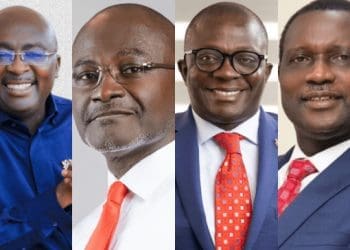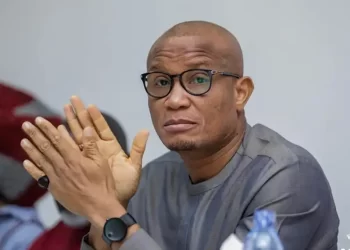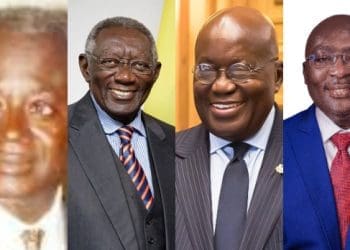In what has been described as a groundbreaking step for healthcare on the continent, the Health Community of West Africa (HCOWA) Association has signed a strategic agreement with COA Research and Manufacturing Company Limited (COA-RMCL) on Friday, September 26, 2025, to establish the first National Teaching Hospital for Traditional and Alternative Medicine in West Africa.
The project, which will be based in Ghana, is envisioned as a Centre of Excellence that will blend traditional medicine with modern healthcare systems, transforming both practice and perception of African herbal and alternative medicine.
The signing ceremony marked a historic partnership between two institutions deeply invested in advancing the health sector. Under the Memorandum of Understanding (MoU), HCOWA and COA will jointly develop, finance, and operate the facility.
The hospital will not only provide clinical care but also serve as a teaching and research institution, setting new standards in the validation, production, and regulation of traditional medicine.
A bold vision for integrated healthcare
The Teaching Hospital is designed to be a state-of-the-art complex. Plans include inpatient and outpatient wards, diagnostic centres, and specialised departments in oncology, nephrology, gastroenterology, paediatrics, women’s health, orthopaedics, dermatology, rehabilitation, and physiotherapy — all adapted for traditional and alternative therapies.
Complementing the clinical facilities will be advanced research laboratories in pharmacology, toxicology, phytochemistry, microbiology, and molecular biology. These laboratories will not only provide the foundation for rigorous testing, quality control, and clinical trials of traditional medicine products but will also support programmes focused on the preventative treatment of disease.
By emphasising prevention alongside cure, the hospital aims to validate herbal remedies, promote early detection, and encourage healthier lifestyles, ensuring that traditional and alternative therapies meet international health and safety standards while reducing the overall burden of illness.
Academic infrastructure will also form a major component. The hospital will feature lecture halls, simulation laboratories, e-learning centres, training pharmacies, and libraries. These facilities are aimed at training the next generation of healthcare professionals, with programmes ranging from diplomas to postgraduate degrees in traditional and alternative medicine. Importantly, the academic curriculum will be developed in collaboration with Ghana’s Ministry of Health, Ministry of Education, and international experts mobilised by HCOWA, including from China.
Global partnerships and local leadership
Speaking at the signing, Madam Sihong Jiang, President of HCOWA, described the agreement as a defining moment for West Africa’s health sector.
“This is not just a hospital; it is a platform for international cooperation. By bringing together Ghanaian herbal medicine, Traditional Chinese Medicine, and conventional medical practices, we are creating a model for integrated healthcare that the world can look to. Our aim is to make Ghana a reference point for Africa’s healthcare innovation while connecting the continent with global best practices,” she said.
On his part, Prof. (MH) Samuel Ato Duncan, CEO of COA-RMCL, emphasised that the hospital would be a first of its kind, not only in Ghana but across the entire West African sub-region.
“This project is timely and historic. It will be the first of its kind in West Africa, transforming the traditional medicine sector into a modern, globally competitive industry. Beyond providing treatment, it will validate traditional products, protect intellectual property, and create opportunities for innovation and commercialisation. Ghana will not just be consuming knowledge but exporting it to the world,” Prof. Duncan noted.
Technology at the core
Jiang explained that a defining feature of the hospital will be the integration of artificial intelligence and digital systems through HCOWA’s Hospital Online Network (HON) platform.
According to her, the system is expected to power hospital operations with AI-driven demand forecasting, real-time inventory management, expiry control, and waste reduction. It will also provide transparent payment systems, e-invoicing, and dashboards for regulators, auditors, and management, ensuring efficiency and accountability.
“This technological backbone will not only modernise hospital operations but also make the institution a model of digital transformation in healthcare across Africa,” she added.
Commenting on the broader vision of the project, Madam Sihong Jiang, President of HCOWA, stressed the importance of prevention in healthcare. She noted that the teaching hospital would not only focus on treating illness but also on strengthening preventive care.
“The preventive treatment of disease is very important for hospitals. It is not only when we get sick that we should pay attention to our health. Prevention must be a core part of healthcare, and this hospital will champion that philosophy,” she said.
Madam Jiang explained that through a combination of traditional therapies, wellness programmes, health education, and early diagnostic services, the institution will help people adopt healthier lifestyles, reduce the burden of disease, and promote long-term community wellbeing.
Research, Training, and Exchange Programmes
Prof. Duncan again noted that the hospital will serve as a centre for advanced research, housing a National Traditional Medicine Database to document, preserve, and regulate indigenous knowledge.
According to him, partnerships with local universities and international laboratories will enable clinical trials, joint studies, and patent development for herbal and alternative medicine products.
Training will also be a priority. Exchange programmes are planned for researchers, lecturers, and students across West Africa and China. This collaboration is expected to foster academic exchange, build capacity, and encourage innovation in the field of traditional medicine.
A new era for traditional medicine in Africa
For decades, traditional medicine in Africa has played a critical role in community health but has often lacked formal recognition and rigorous validation. By establishing this hospital, Ghana and its partners aim to change that narrative, building a structure where indigenous knowledge meets scientific validation.
The project positions Ghana as a regional hub for traditional and alternative medicine, ensuring that local therapies are not only preserved but refined, documented, and scaled for both domestic and international markets.
As construction preparations begin, stakeholders are confident that the Teaching Hospital will become a regional referral centre, a research powerhouse, and a knowledge hub that will redefine healthcare delivery in Africa.













